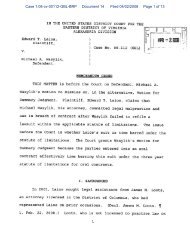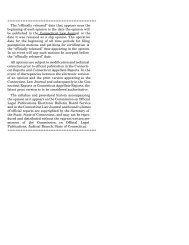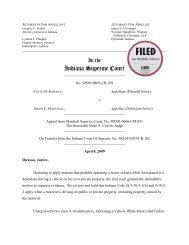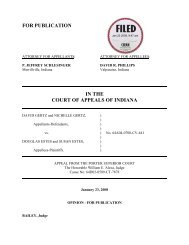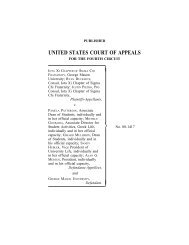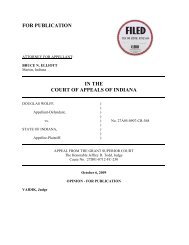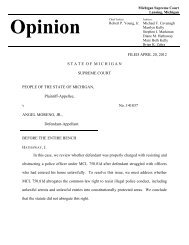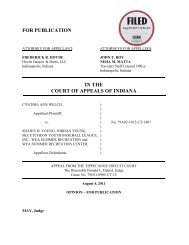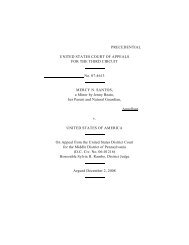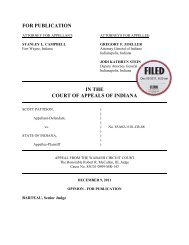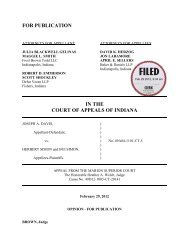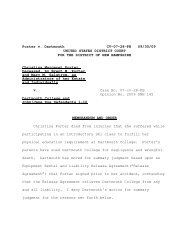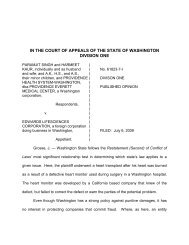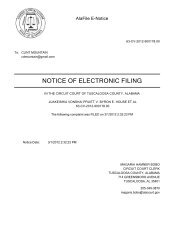IN THE COURT OF APPEAL OF THE STATE OF ... - FindLaw
IN THE COURT OF APPEAL OF THE STATE OF ... - FindLaw
IN THE COURT OF APPEAL OF THE STATE OF ... - FindLaw
Create successful ePaper yourself
Turn your PDF publications into a flip-book with our unique Google optimized e-Paper software.
Heuser concluded: “mold toxin is probably what gives her the cognitive<br />
impairment, the fatigue, the headaches, and also the fibromyalgia.” Heuser knew<br />
nothing about the quantity or amount of exposure necessary to cause a<br />
carcinogenic effect, nor about the amount of any “mold toxin” to which Dee was<br />
exposed. The trial court found Heuser‟s proffered testimony did not satisfy the<br />
foundational requirements of section 801 to be admissible on the issue of causation<br />
The court further concluded that Heuser‟s opinions could not be referred to<br />
because they were not subject to an in-court examination.<br />
c. Dr. Juan Manuel Gutierrez: 402 Hearing<br />
Juan Manuel Gutierrez was a clinical neuropsychologist. According to his<br />
testimony, the job of a neuropsychologist was “[t]o assess the different functions of<br />
the brain to see if there‟s any impairments.” He evaluated Dee in June 2003. He<br />
opined that Dee suffered from toxic encephalopathy, disturbance of smell and<br />
taste, and mood disorder due to toxic encephalopathy. He believed Dee‟s<br />
impairment was caused by mycotoxins. He based this conclusion on his<br />
experience “with mold exposures,” his training, and literature he reviewed.<br />
Gutierrez used the SPECT scan of Dee to complement his evaluation and<br />
verify the pattern of deficiencies on his neuropsychological testing. Gutierrez<br />
concluded that Dee was exposed to mycotoxins based on Dee‟s own account and<br />
on records from Ordog. He acknowledged, however, that “[a]s a non-physician, I<br />
can‟t necessarily delve into this component blood analysis very much, but I must<br />
have some sense of there being a toxin exposure, a possibility of one.”<br />
The court found that Gutierrez was qualified as an expert. Subsequently, the<br />
court further clarified that Gutierrez could testify regarding the tests he<br />
administered, the scores on the tests, and whether the scores fell within a normal<br />
range. “He can testify on the things in his field. He can testify to the test[s] that he<br />
gave. He can testify to the scoring of the tests.” The court further explained<br />
8



